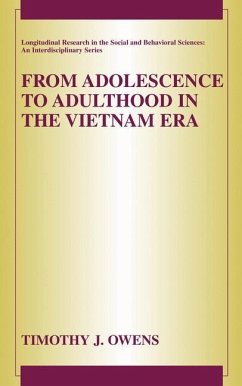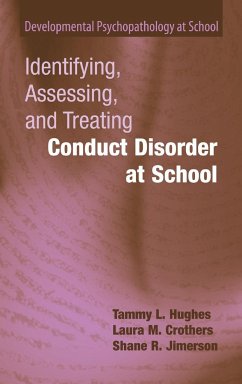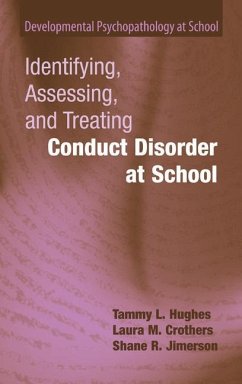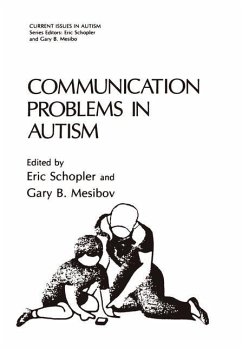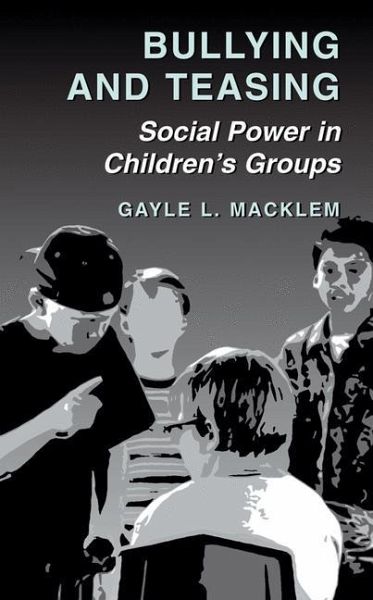
Bullying and Teasing
Social Power in Children's Groups

PAYBACK Punkte
19 °P sammeln!
Current research demonstrates that bullying affects all children in schools, not simply the several students who may be most visibly involved in an individual incident. In order to prevent escalation or to stop the action, something different must happen. The victim or bully must change, but this may not be easy. Importantly the classmates or the adults who witness the interaction have the power to change the interaction as well.Bullying and Teasing: Social Power in Children's Groups frames bullying and teasing as part of the critical foundations of elementary and middle school planning that w...
Current research demonstrates that bullying affects all children in schools, not simply the several students who may be most visibly involved in an individual incident. In order to prevent escalation or to stop the action, something different must happen. The victim or bully must change, but this may not be easy. Importantly the classmates or the adults who witness the interaction have the power to change the interaction as well.
Bullying and Teasing: Social Power in Children's Groups frames bullying and teasing as part of the critical foundations of elementary and middle school planning that will allow children to experience the sense of personal safety needed to learn and grow.
Bullying and Teasing is designed for school psychologists and other school mental health workers, including school counselors, social workers and school nurses, who want to address the ways bullying and teasing impact both individual students and the school as a whole. The book will also be of interest to school administrators, health coordinators, special educators and school board members.
Bullying and Teasing: Social Power in Children's Groups frames bullying and teasing as part of the critical foundations of elementary and middle school planning that will allow children to experience the sense of personal safety needed to learn and grow.
Bullying and Teasing is designed for school psychologists and other school mental health workers, including school counselors, social workers and school nurses, who want to address the ways bullying and teasing impact both individual students and the school as a whole. The book will also be of interest to school administrators, health coordinators, special educators and school board members.





